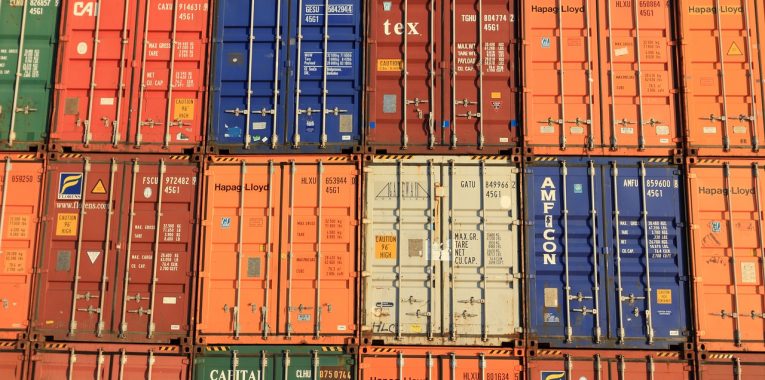Moving is always a challenging moment in life, and according to the United States Census Bureau, a single individual will move up to 11 times in their lifetime. That’s a lot of time you need to deal with planning, packing, loading, utilities, and all the other details that have to be taken care of every […]
5 Things You Need to Know Before Hiring a Portland Moving Company
Imagine it’s the day of your move to Oregon, and you have to do it all by yourself. You load up your car with boxes, furniture, and other items that you’ve spent the last few months packing up. The clock is ticking as you realize there’s no way this can be done in time, so you call a friend to help. But still, you end up with broken stuff, missing items, and an overall stressful moving experience. So in the end, you decide to hire professional movers. But how can you make sure you’re making the right call? That’s where these five things you should know about employing a Portland moving company come into play!
1. How Many Years Have They Been in Business?
Experience speaks for itself. Any company that has been in business for decades is a good sign. It means they have an established reputation and that they’ve done this for a while. So you can trust that they know what they’re doing. Operating for years exposes a company to various kinds of moving scenarios. No matter how complicated your move may seem, they will most like know a workaround.
2. Are They Licensed and Insured?
Different states impose varying rules regarding movers that operate within their boundaries. Oregon is no exception. Before proceeding with your potential movers, make sure they’ve complied with the licensing requirements.
According to the official site, a Portland moving company must secure a certificate of authority from the Oregon Department of Transportation. This is required for any business providing for-hire household goods transportation anywhere in the state.
On top of that, they should be able to show documentation that they’re authorized to run special moving services, such as piano and white-glove moving. Never ever sign with a company that can’t show legal proof, or else you’ll be risking your items. A reputable moving company should have no problem securing licensing and insurance.
And if you’re hiring interstate movers, they should be registered to the FMCSA with a USDOT number. Once they’ve provided you with the digits, run them on the Mover Search Tool to learn more about their status.
3. Understand Moving Estimates
A moving estimate is a cost quoted to you by the company for the service. Ideally, a mover will send a representative to your home to evaluate how much transporting your belongings would cost. There are three types of moving estimate, namely:
- Non-binding estimate: This one is pretty tricky. The company will give you a price, but they aren’t obliged to honor it. It often results in hidden fees and extra charges on your side.
- Binding estimate: Opposite to the non-binding estimate, it includes all costs, and the movers will have to honor the price they name. However, if you request last-minute changes or extra services, it will still be charged to you.
- Binding Not-To-Exceed Estimate: Last but the most popular one, this is the best option because you are guaranteed that your moving cost will not be more than the price listed on the estimate.
More importantly, make sure to receive your estimate in writing. Never take it verbally, or else you will find it hard to maneuver misunderstandings if ever they occur.
4. Cheap Isn’t Always the Best
Yes, you want to save up. That’s totally fine and understandable. However, it needs to be within reason. There may come a time when being thrifty comes at the expense of your own safety and security. Knowing this, it’s not always a good idea to go with a company that offers meager prices – even lower than the current market.
Ask yourself: “Why are they so cheap?” One possible reason is that they’re cutting corners. Maybe because their workers aren’t getting paid enough, which leads to these employees working harder and for longer hours – leading to accidents from fatigue or a lack of oversight. This can cause damages to your property or injuries to the movers.
Another thing is they might at times charge less for their services but somehow manage to find additional costs later on. But whatever the case, keep this in mind: There are no free lunches. What you don’t want to do is find yourself paying more in the long run. Always try to pay the standard price for a reputable moving company.
5. Avoid The Red Flags
Scammers are everywhere, and the moving business is no exception. Though it can be difficult to tell a scam from a legitimate business sometimes, there are some good ways to know if you’re dealing with a shady one. Be wary of your potential movers:
- They don’t come to your house to provide an estimate. This is pretty obvious since how can movers know the value of your move if they haven’t seen your belongings?
- They ask for a hefty deposit before starting the job. Credible movers should be paid after your belongings are deposited safe and sound at their destination.
- They don’t answer questions confidently and professionally. A good mover should be able to address your concerns and put your mind at ease.
- They aren’t licensed and insured. If your mover isn’t insured, they won’t be able to provide responsibility in case of damage.
- Lastly, they don’t have any record of working in Oregon. They’re likely doing the ‘fake it till you make it’ thing on this operation.
At The End of The Day
Moving is just a brief period in your life. It’s not permanent. Trust the process. Make the most out of the experience. And most importantly, if you want a good list of trustworthy Portland movers, make sure to click here. Not a single one will disappoint!
6 Office Moving Mistakes That Can Hurt Your Business
Relocating to new office space is often just as stressful as is moving house. Whether you’re moving across the city or cross-country, there are a few key things you want to avoid during your move. Keep reading for six mistakes no business should ever make during the relocation process. 1. Moving Without a Plan Business […]
How Moving Companies Calculate Your Out-of-State Moving Quote
The thought of moving to a new place is often exciting and fun, but the actual act of moving is anything but. Out-of-state moves require time and careful planning, and they’re made much easier if you hire professional movers. Professionals at a cost that isn’t cheap, however. Letting professionals do the heavy lifting can have a big impact on your moving budget.
When you’re calling around getting quotes, here’s how the movers are calculating your estimate.
1. Weight
When drafting an estimate, professional movers consider how much you plan to move. The more you move, the more it will cost. Moving the contents of a one-bedroom apartment generally costs less than moving those of a four-bedroom house. To ensure an accurate estimate, potential movers should come to your home and examine its contents.
Very heavy furniture, an excessive amount of books and other heavy items could impact the cost of your move.

2. Time and Labor
The more labor your move requires, the more it will cost. Movers sometimes pack items for you and may need to disassemble and reassemble furniture. They will also charge you fees if they must store your items for you until your new home is ready. Keep in mind that labor costs may vary. If you’re moving into a more expensive area like Manhattan or San Francisco, labor rates may be higher when unpacking your truck than they were when packing it.
3. Distance
Every mile that your moving company hauls your belongings adds costs to the move. The moving company must pay the truck driver and cover the cost of his gas and any tolls he must pay along the way. Carrying distance can also be an issue. If your movers can’t park a truck or van close to your house, they could have to carry your belongings further than anticipated. This added carrying distance adds labor and time, increasing your bill.
4. Insurance Costs
Federal law requires movers to offer clients two insurance options.
- Full Value Protection: This insurance requires your mover to pay you the current market value of any items that get lost or damaged during the move.
- Basic Released Value Protection: This insurance reimburses you a set rate of around 60 cents per pound of cargo.
Of course, you can also purchase your own third-party insurance for extra coverage. Because it comes from a third party, however, the cost of this extra insurance won’t be included in the estimate from your mover.

5. Cutting Costs
If you want to minimize the cost of your interstate move, resist the temptation to skimp on the insurance. Instead, pack your items yourself and have them ready to go when the movers arrive. Disassemble and reassemble as much of your furniture as possible on your own and do what you can to grant your movers close, clear access to your home.
If you’re able, time your move for the middle of a month and move on a weekday when movers are in less demand and move only what you really need. This is a great time to downsize, and doing so will make your move cheaper.
Advice for Packing Dishes and Glasses for a Relocation
When you are getting ready for your next big move, there is probably nothing more nerve-racking to pack than bowls, plates, coffee cups, and glasses. Because they can break so easily, you just know that there has to a certain strategy to packing them, so they stay intact, but you aren’t sure where to start. […]
What to Know Before Moving to Portland, OR
If you are planning to move to Portland, Oregon, there are many things you should know beforehand. While the city is a great place to live and work, there are aspects to it that you may not be expecting. Here are some of the most important things to know before moving here: 1. There Are […]
How to Pack a Moving Container for a Cross-Country Move
There are plenty of options to consider when you’re planning a cross-country move. Many people opt for using a moving container that can be shipped directly to your new location rather than renting a moving truck. This can be a more economical and more efficient choice, but it also presents the challenge of loading your […]







